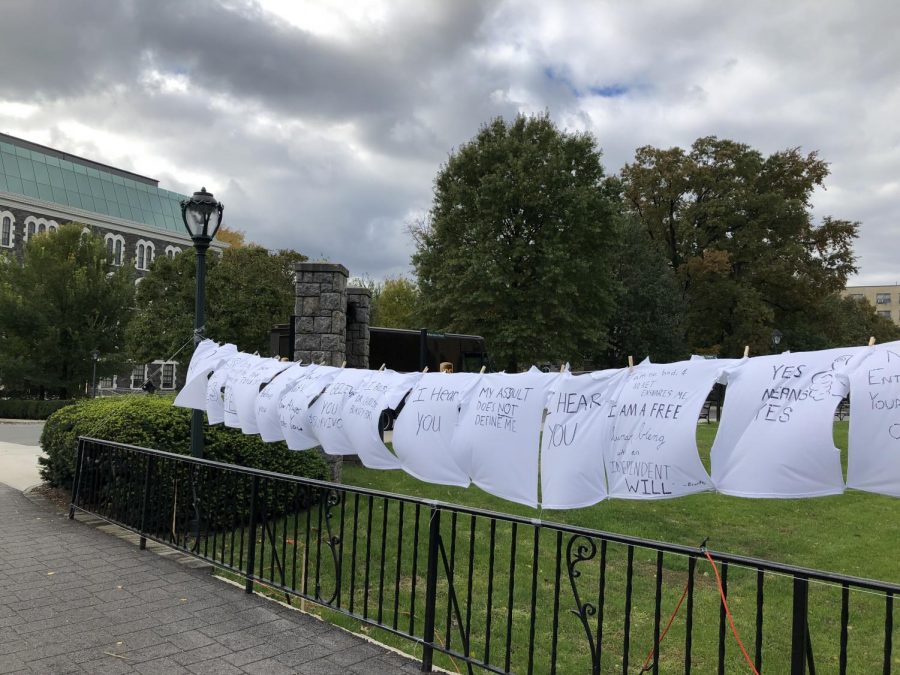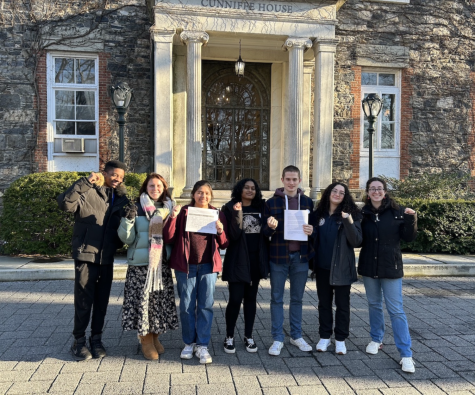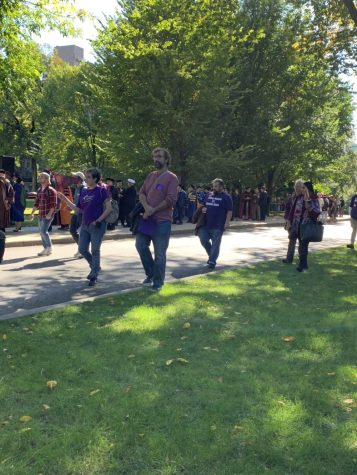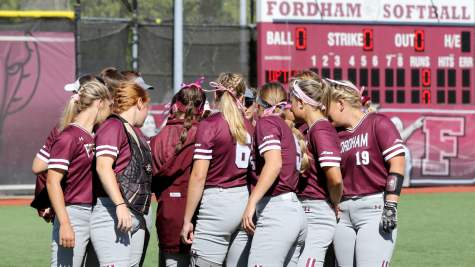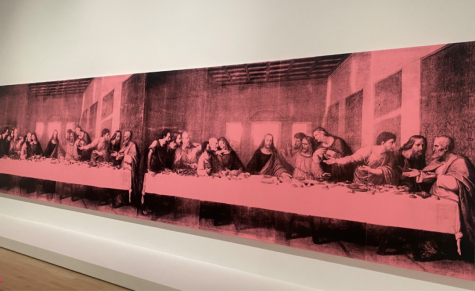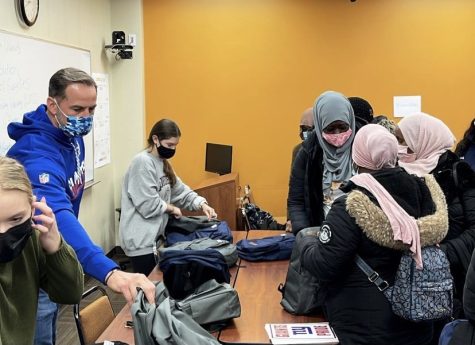CSM Plans Hybrid Events for Week of Action
United Student Government (USG)’s Committee on Sexual Misconduct (CSM) organized a week of activities, seminars and collaborations dedicated to the support of sexual misconduct survivors, the education of students and the prevention of sexual misconduct from Oct. 26 through Oct. 30.
This Week of Action included both virtual and in-person components which were in compliance with COVID-19 guidelines and allowed a wide range of students to attend.
Alex Shaw, FCRH ’21, co-chair of the Committee on Sexual Misconduct, acknowledged that COVID-19 restrictions made planning and inclusion more complicated than usual. However, the goal of the planning remained the same.
“[It’s] to create a diverse schedule of events that supply various different types of information and resources,” according to co-chair Lindsey Sullivan, FCRH ’22.
The Clothesline Project, which was exhibited on Monday, involved students either writing down statements in support of survivors on a t-shirt or submitting a statement through Instagram.
This, along with the Candy and Consent event on Friday, were the two in-person events — although both welcomed virtual participants as well. The entirely virtual events included
a collaboration with Counseling and Psychological Services (CPS) on Tuesday, during which CSM discussed catcalling and mental health, as well as holding a screening of the documentary “It Happened Here” on Wednesday and a discussion with Leading Women of Tomorrow about sexual harassment in the workplace.
“We hope that participation in the Week of Action translates to a campus environment where every student, regardless of their gender identity, sexual identity or background, feels safe and comfortable,” Sullivan said.
Shaw said she hoped that students would take what they learned during the Week of Action to create a more open campus environment where survivors feel safe and supported and where students are active bystanders.
“Not only at Fordham, but at colleges and universities across the country, the epidemic of sexual assault seems to be swept under the rug and is treated as a taboo topic,” Shaw said.
The Week of Action attempts to educate students on topics like Title IX, bystander intervention consent and more. Initiating discourse around these concepts is a step toward both understanding the problem of sexual misconduct and preventing it in the future, according to the co-chairs.
Sullivan said she thinks that having a week that is dedicated to this topic creates a safe space for survivors where they can receive support and resources specifically created for them. Involving others into this process, though, as well as continuing these conversations for extended periods of time, really increases visibility, according to Shaw and Sullivan.
“It forces students to understand that sexual assault isn’t an abstract idea, but one that affects people on Fordham’s campus,” Shaw said.
Sullivan said that because CSM is able to represent survivors of sexual misconduct on a formal level, it better allows them to have their voices deservedly heard by USG and Fordham’s administration. Because of this, she thinks that CSM is integral to USG.
Another aspect as to why CSM is crucial in Fordham’s student government is because of the lack of representation for WOC and POC in USG, according to Shaw.
“As a relatively diverse committee, I hope that our presence sheds light on issues pertaining to these marginalized groups and creates a more pressing need to advocate for these issues,” she said.
The CSM said to stay tuned for more collaborations and events like the Week of Action in the future.





































































































































































































